In series that takes place at a time when queer people existed in the movies in the margins and were referred to in coded ways, Ratched sure does love its food metaphors -- a peach, oysters, and the nutritional value of bologna figure prominently. An origin story for the sadistic Nurse Ratched from the Best Picture Oscar-winner One Flew Over the Cuckoo's Nest, the eight-part Netflix series from Ryan Murphy and Evan Romansky stars Sarah Paulson as the mysterious Mildred Ratched.
A nod to Hollywood genre films of the era (the years just following World War II), Ratched, with its saturated tones and Classical Hollywood split-screen action, is equal measures noir, horror, and melodrama. It's also deeply queer.
Set in California's Central Coast just above Monterey (Big Little Lies territory), the story begins with Mildred's arrival at an institution where she seeks to keep the famed clergy killer Edmund Tolleson (Finn Wittrock) from execution. Once she inserts herself into the goings-on at the institute, she faces off with her at-work nemesis Nurse Betsy Bucket (Judy Davis delivering salty one-liners) and ingratiates herself with the head of the institute, the brilliant Dr. Hanover (Jon Jon Briones).
In need of a change of scenery, Mildred eventually steps out with Cynthia Nixon's Gwendolyn Briggs, the press secretary to Vincent D'Onofrio's lascivious governor. That's where the oysters come in as Gwendolyn whisks Mildred to a quaint seaside haunt where she tutors Mildred in the sensuous act of oyster eating. Refreshingly, although it takes a while for her to come around, Mildred eventually realizes she's interested in what Gwendolyn has to offer.
As with Murphy's Hollywood, which dropped in May, Ratched seeks to hand back stories to marginalized people who were denied images of themselves on-screen -- in this case, especially LGBTQ+ people. If queer people were depicted at all, they were eventually forced back into unwanted opposite-sex relationships, dead, or in an institution. The setting of the hospital in Ratched offers the opportunity to take back some of that old Hollywood story.
"In centering it around a mental hospital and trying to decide not only how to treat mental illness but actually what is mental illness and what constitutes a mental illness?" Nixon tells The Advocate. "We certainly see a whole host of people, including queer people, who are defined as mentally ill and are subjected to sadistic tortures and lobotomies as a curative mean."
Meanwhile, Sharon Stone stars as Lenore Osgood, a socialite with a literal monkey on her back who is bent on revenge. Sophie Okonedo (Hotel Rwanda) stars as a patient who presents with multiple personalities whom Dr. Hanover is determined to cure. Rounding out the cast are Amanda Plummer (Pulp Fiction, Freeway) as an alcoholic roadside motel owner, Corey Stoll (House of Cards) as a contract killer with a fondness for Mildred, and Charlie Carver as a sweet orderly.
Light spoilers ahead.
Cynthia Nixon
"The character Gwendolyn that I play is so different from the characters I usually play. I usually play people who are far more divided upon themselves and far darker and quirkier. And Gwendolyn is so purely who she is and so complete," Nixon says.
"Some people have asked me if she's struggling with her sexuality. She's not struggling at all," Nixon adds. "She understands exactly who she is and what she wants, and she's trying to make it happen in 1947, which is very difficult. But she is the only person in Ratched sort of advocating the path of light."
Nixon, who's been with her wife since 2004, also touts the benefit of having queer women (Paulson has been publicly out for about the same time as Nixon) in queer roles.
"Sarah is so incredible. And this character has so many different colors," she says. "I don't think there should be any kind of litmus test for who gets to play what kind of parts, but I think having two queer women playing these two queer characters was an enormous boon."
"There was a whole bunch of different things that happened, particularly later in the series, where Sarah and I went in and spoke to the writers and said, 'This can't happen. Can't we have more of this? Why does this have to happen that way?'"
"They were amazing, and they listened," she says.
Sophie Okonedo
"People were told they had mental health problems because of their nature -- because of the way that they were. It's really easy to look back shocked. And I wonder what there is now where people are told they have mental health problems and we might look back and think and think, Well, that's still shocking," Okonedo says of the show's commentary on the business of treating people in institutions. "It feels like we know so little. There's still so much to be done about mental health. We're so limited."
Despite rivalries and ultimate betrayals, there is, at times, real solidarity among the women in the series. Okonedo speaks to the rarity in the depth of the women on-screen.
"I love it that we were allowed to be flawed and dark and difficult. And then lively and loving -- that we were allowed to be all those things that men get to be all of the time. We could do all of it. We didn't have to be one type of woman," she says. "And there were all these different types of women -- most of them over 40 or 50. It's so nice being in a room,where everywhere you look, there's a completely different older woman that's just got a real life to talk about."
Finn Wittrock and Jon Jon Briones
"I love that the show acknowledged my culture in this character. They could have ignored it. They embaced it. And he's a family man. It makes it easier to work on something for somebody's benefit," Briones says of Dr. Hanover, whose Filipino heritage is brought into the story.
"He's brilliant. He's egotistical because he knows that he's brilliant, but at the same time, he truly understands that 'I know I can help people,' but he's doing it for somebody else as well."
"I feel like he's got a chip on his shoulder because he's trying to make it in the world that is designed for him to fail. That makes the stakes for him even higher," he says.
An alumnus of Murphy shows including a few seasons of American Horror Story and The Assassination of Gianni Versace: American Crime Story, Wittrock also shares about working with the women-led cast of Ratched.
"This is really special. This is the beginning of a new way into storytelling. It felt momentous in a way that we're telling this side of a story that we thought we knew and from the feminine perspective," Wittrock says.
"I think about this line that Judy Davis says where someone asks her, 'What about the doctors?'And she says, 'Honestly, who needs 'em?'"
"That to me is the iconic kernel of this show -- switching the balance," he says.
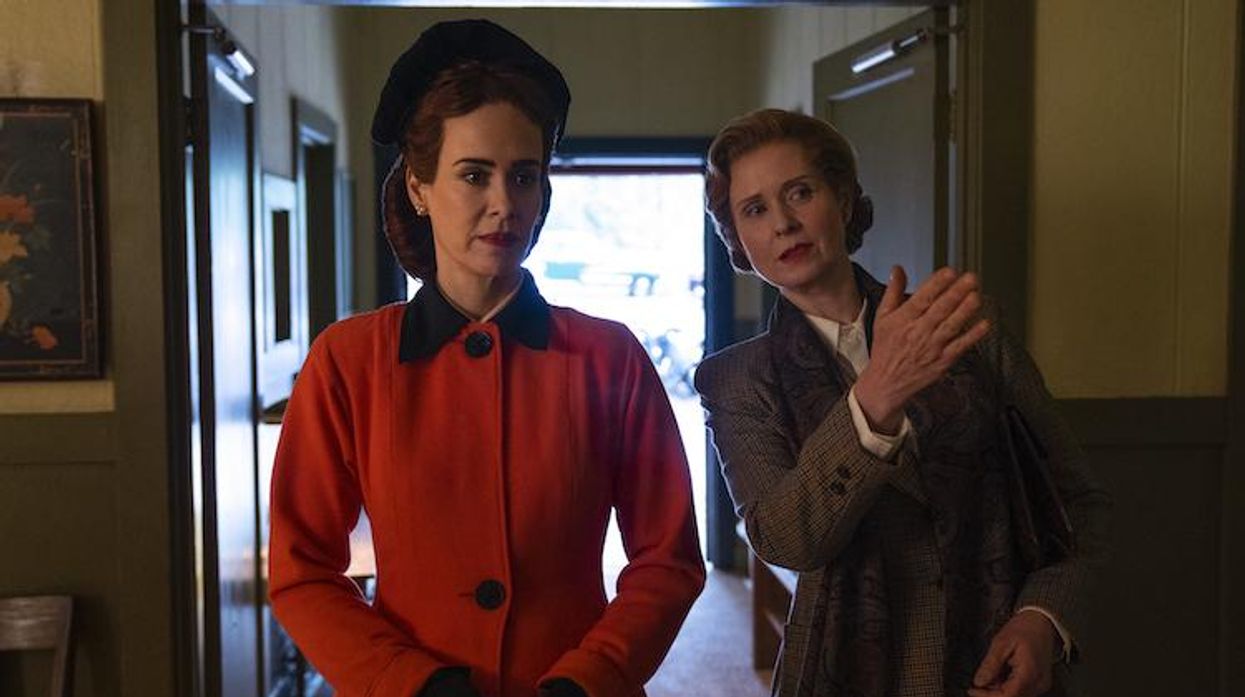

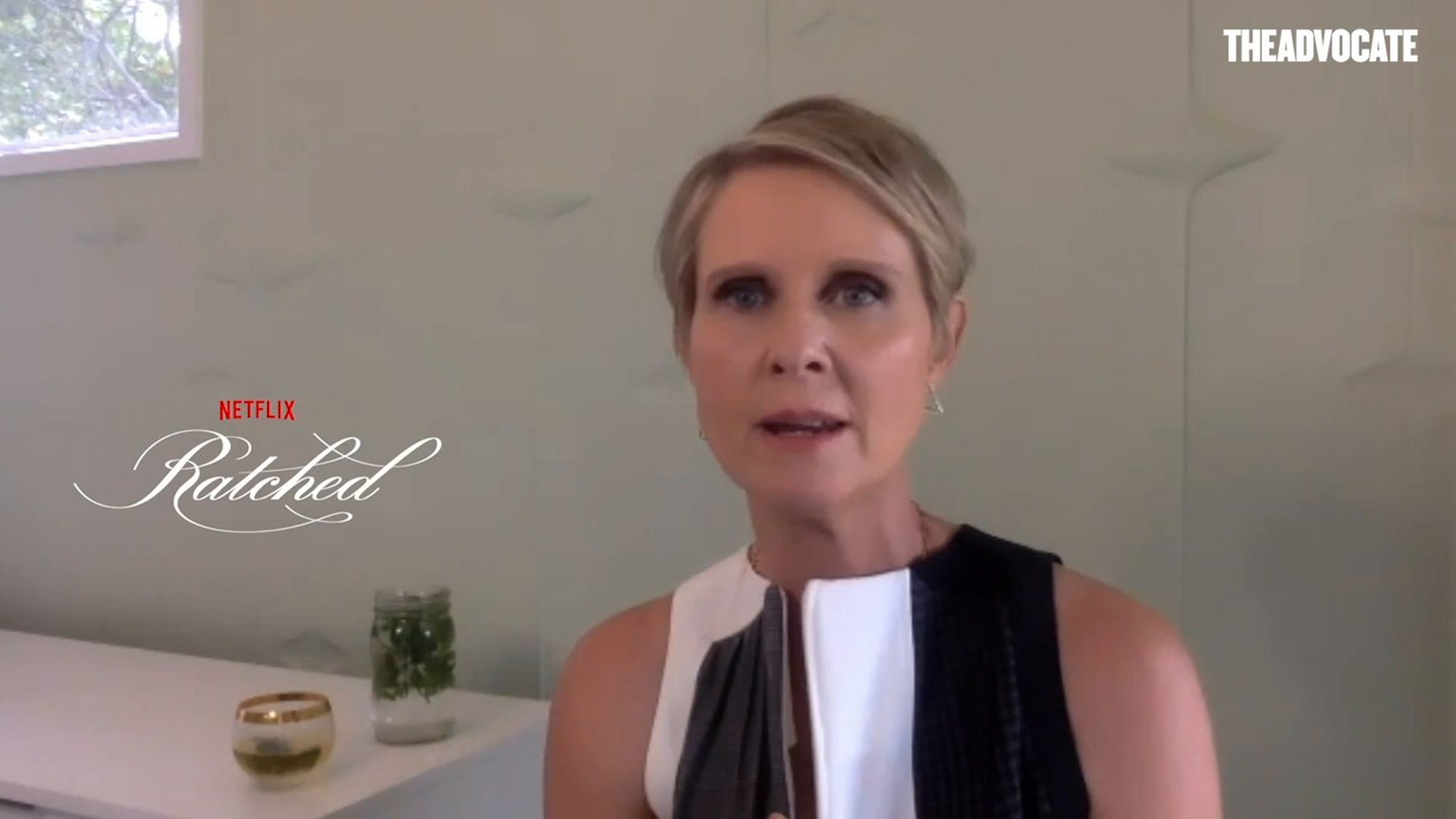
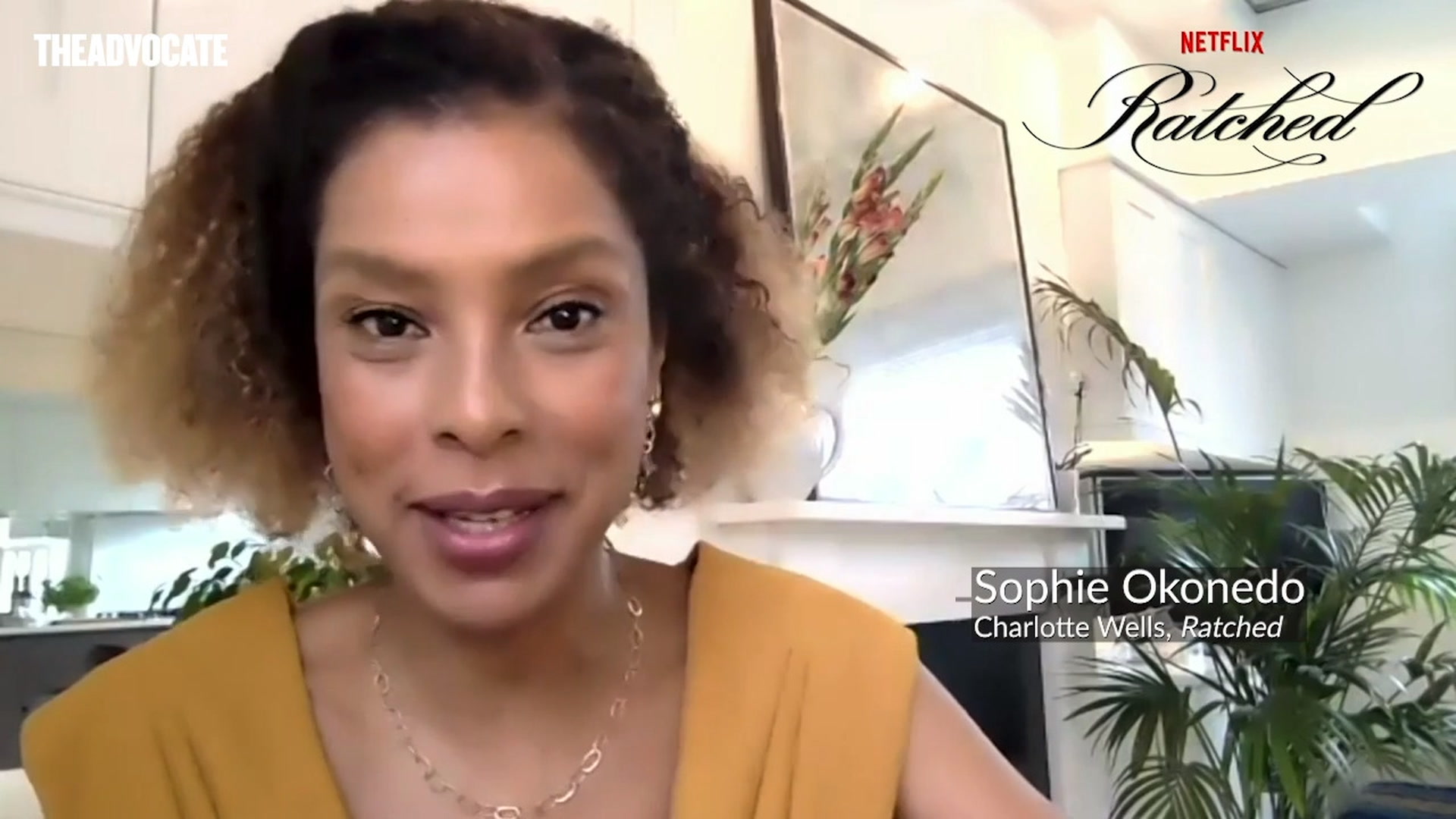
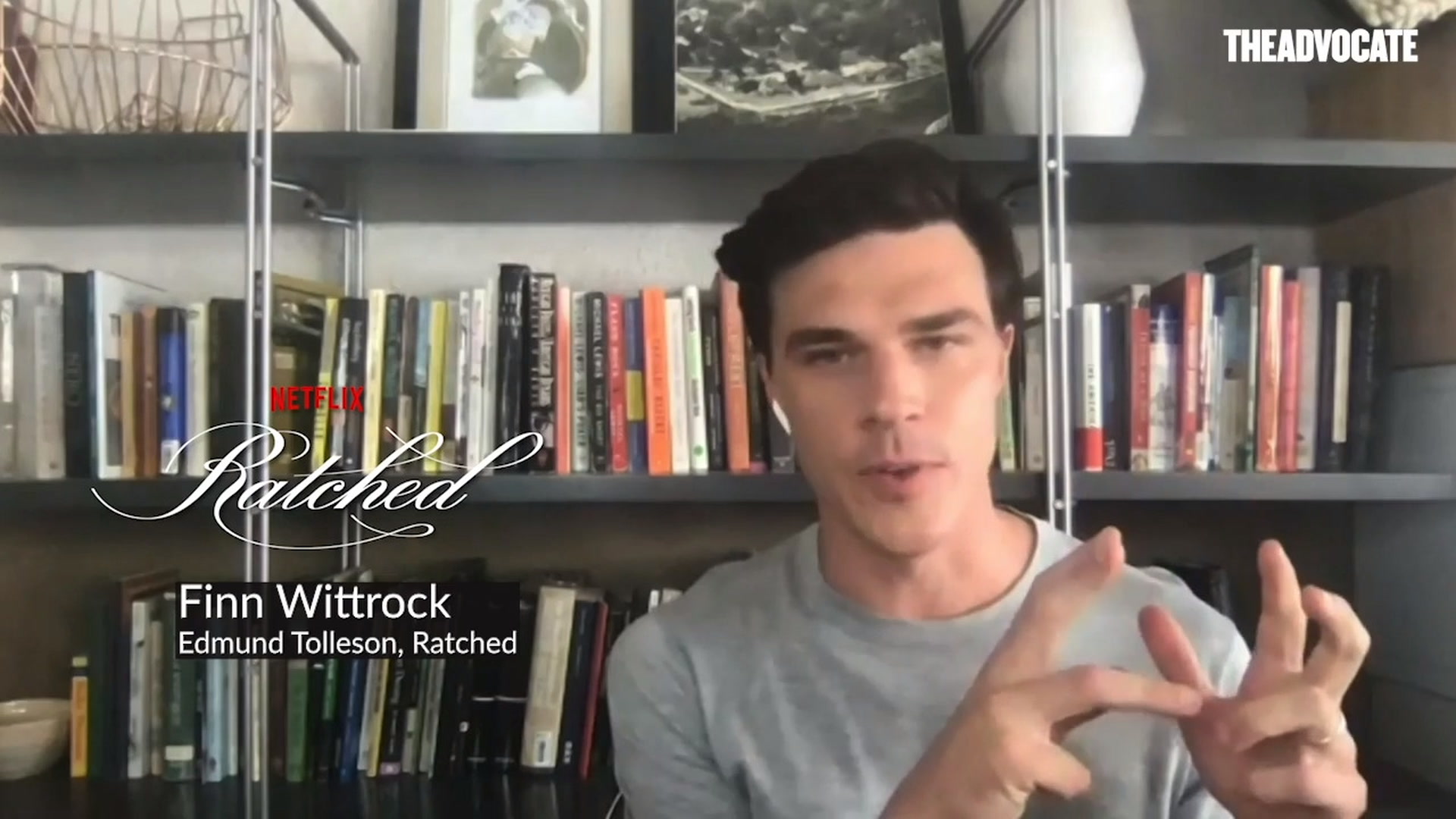






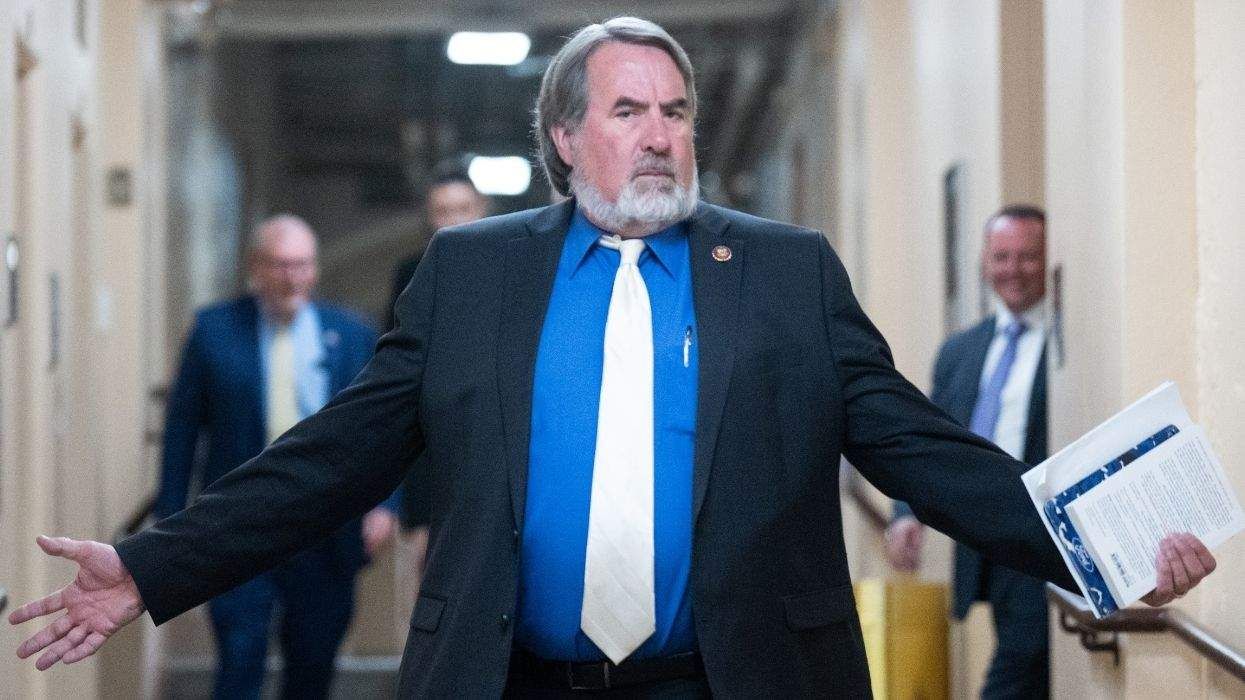

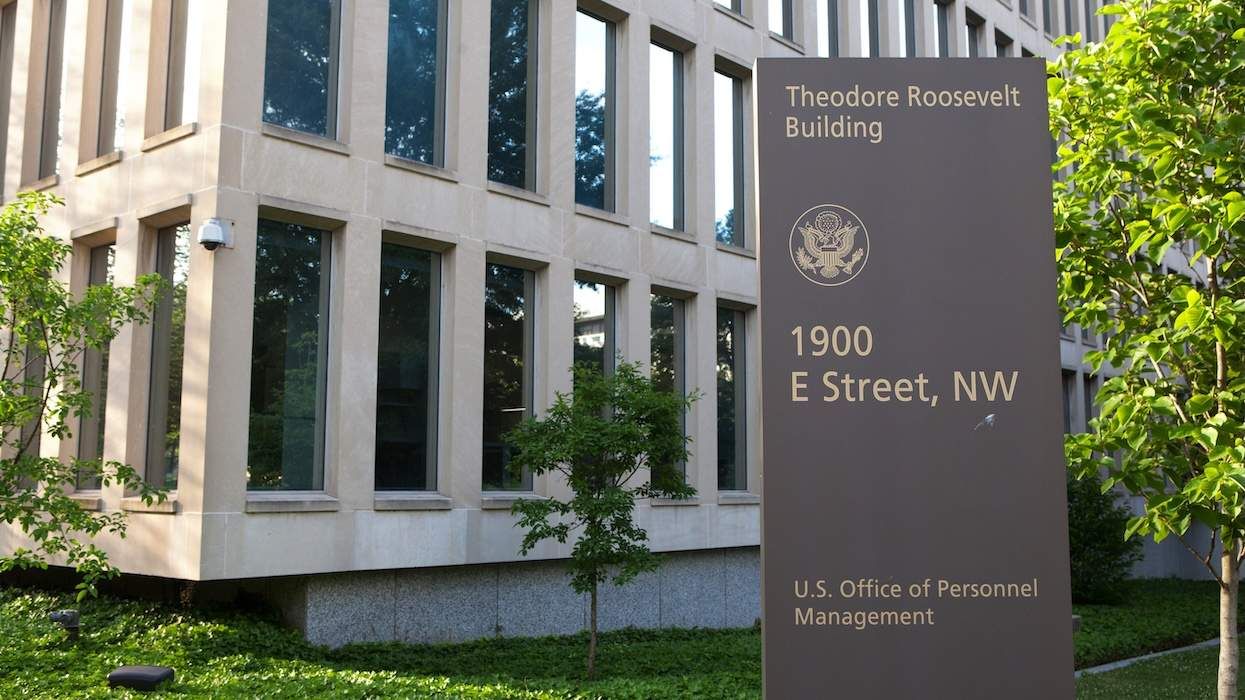

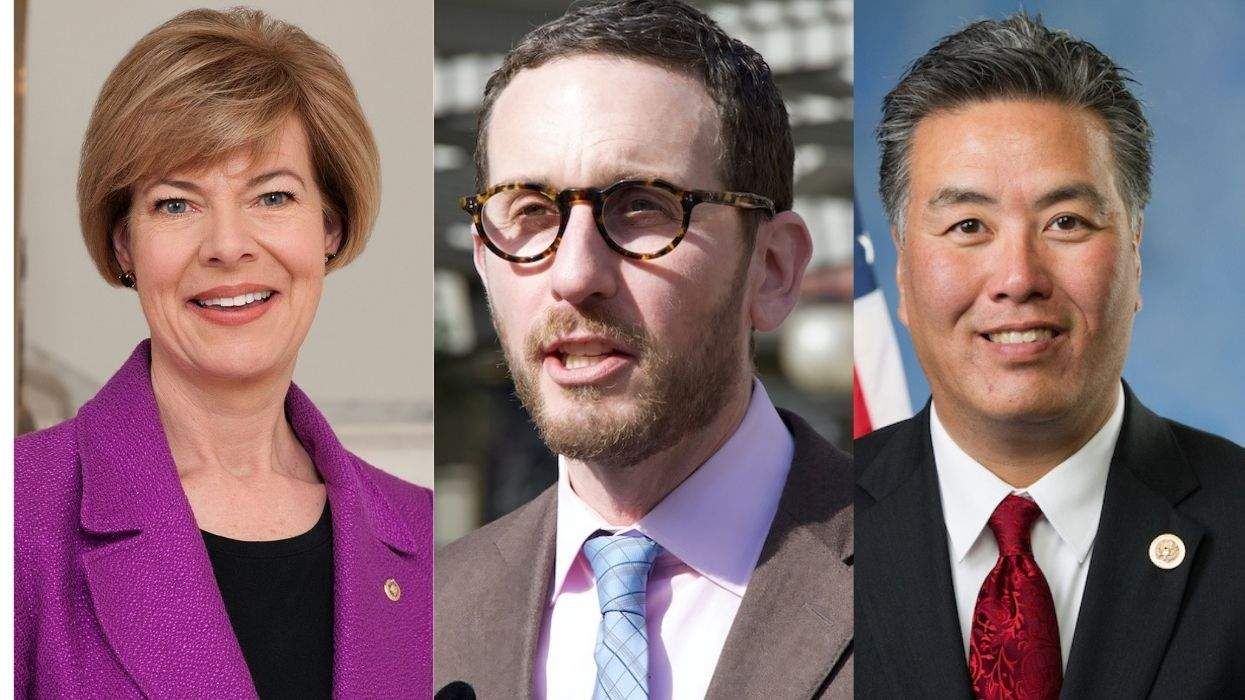


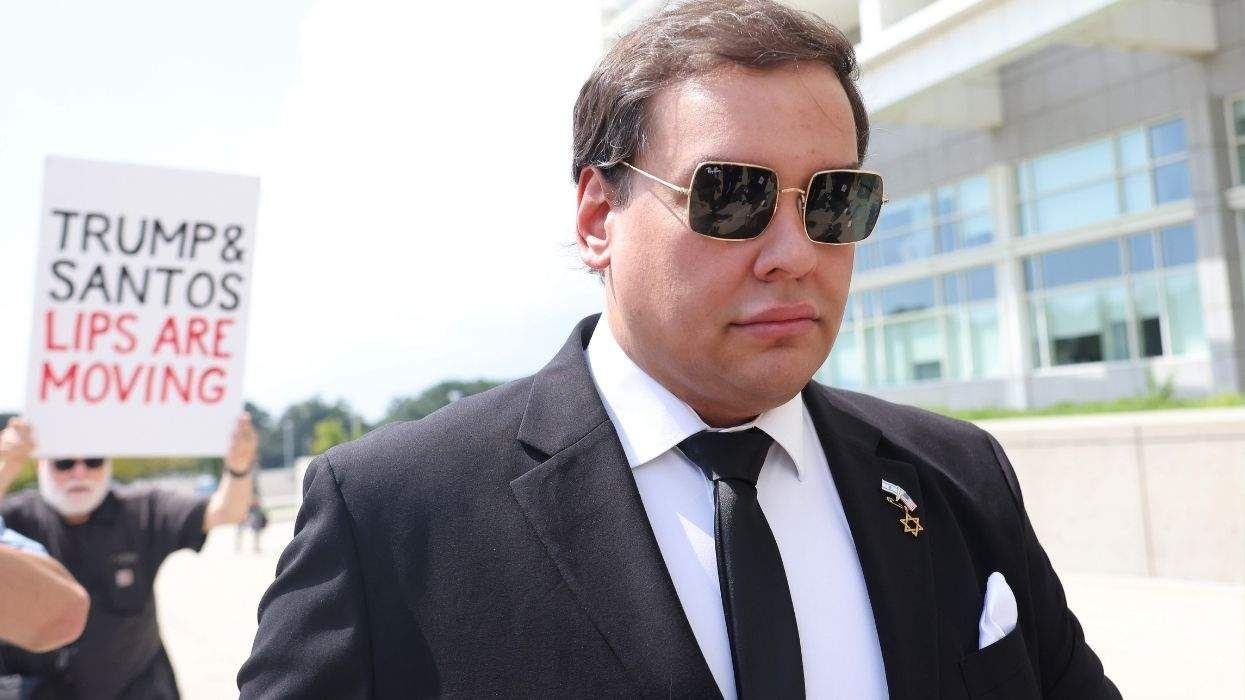
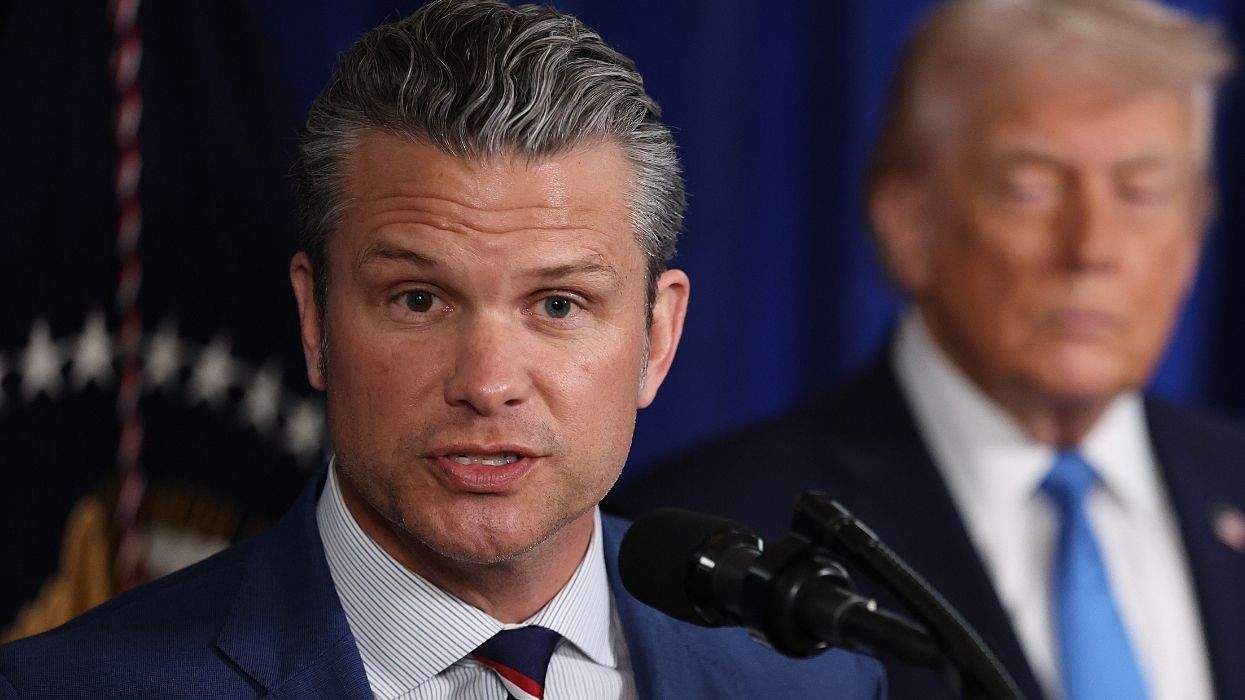


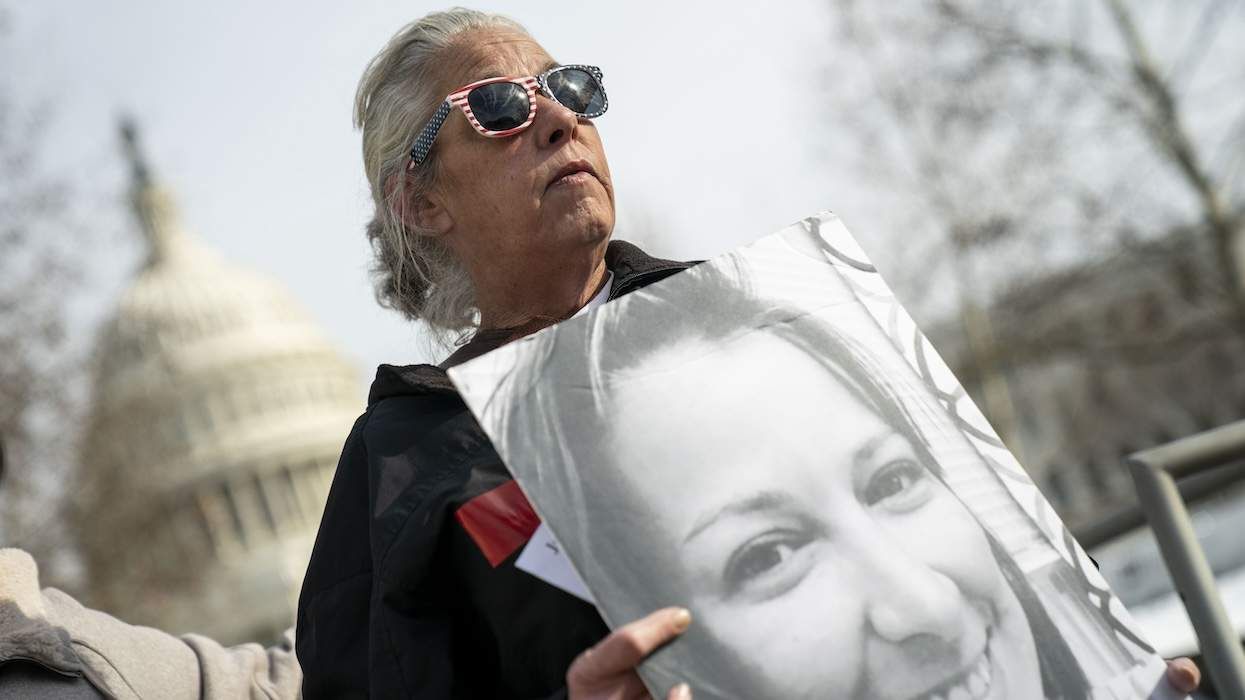
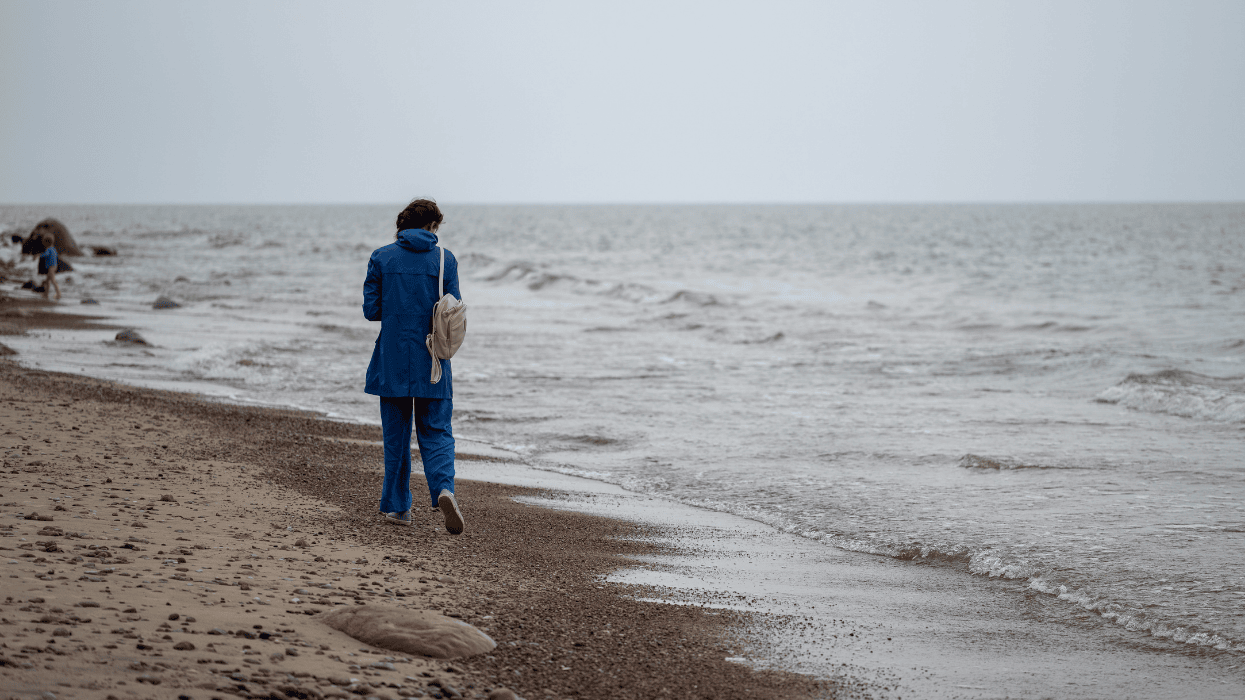







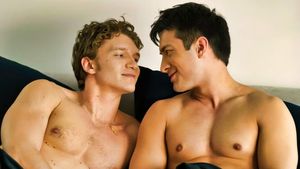



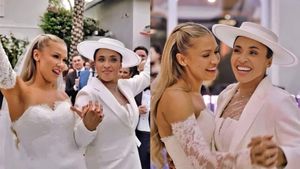




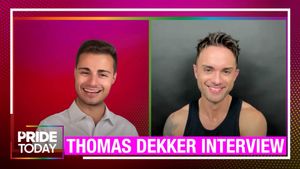

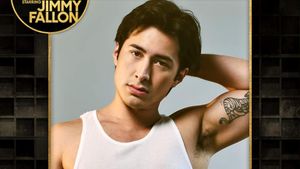

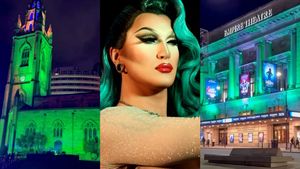
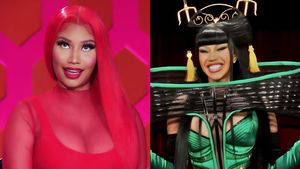
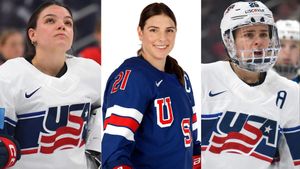
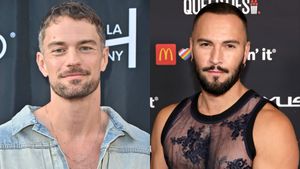
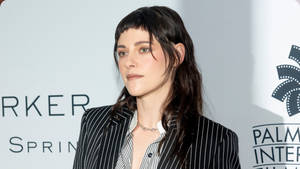
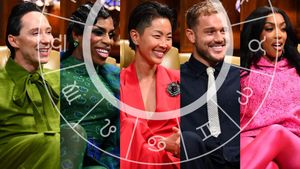

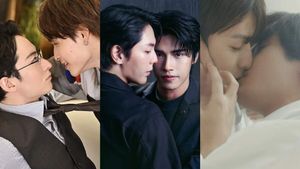







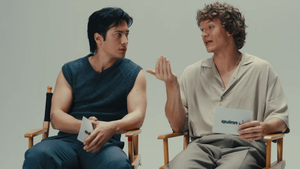




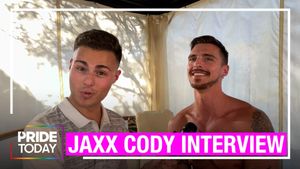







Charlie Kirk DID say stoning gay people was the 'perfect law' — and these other heinous quotes